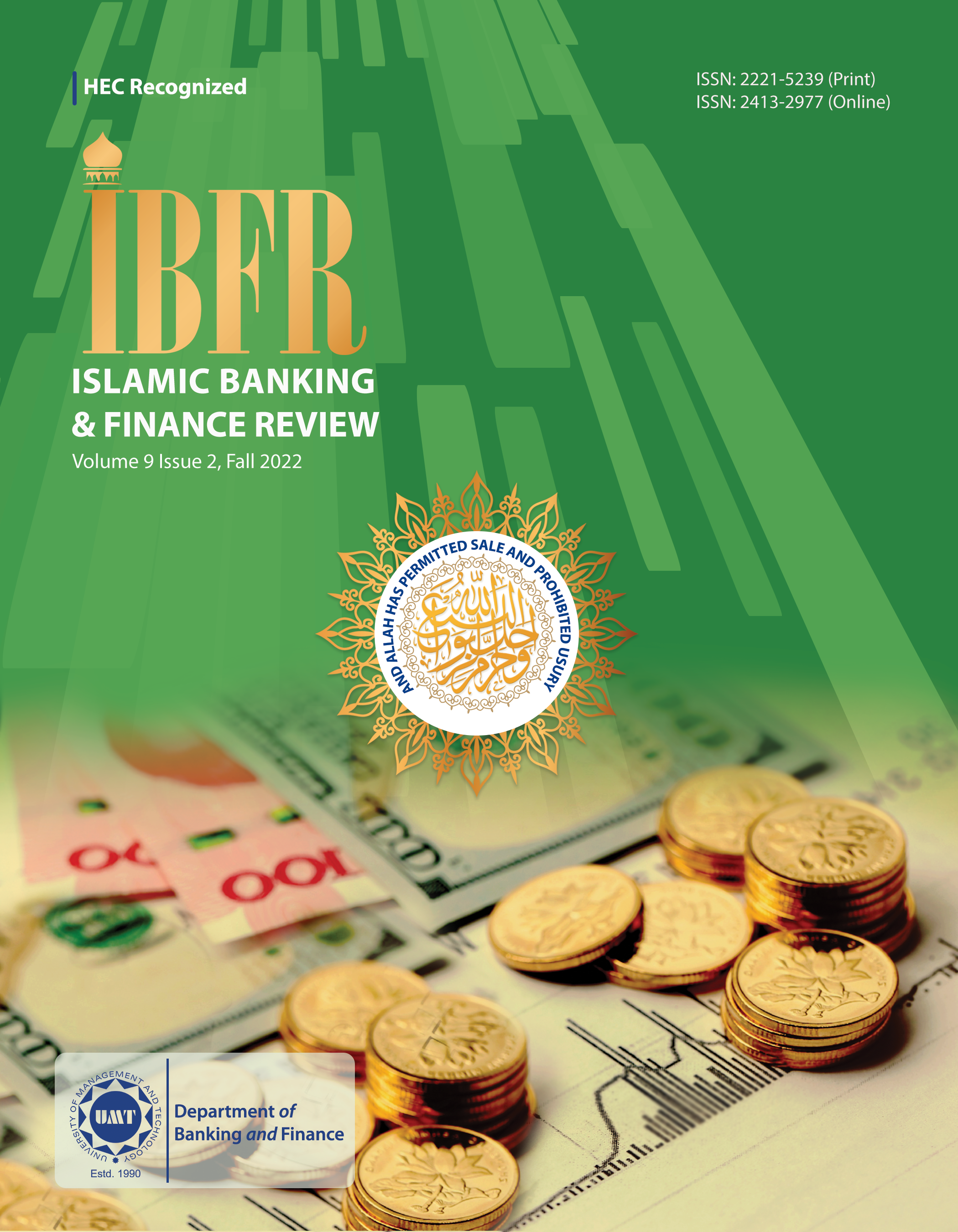A Critical Analysis of Earnings Management: Signal Theory versus Shariah’s Primary Sources
Abstract
 Abstract Views: 69
Abstract Views: 69
Abstract
Earnings management (EM) is the manipulation of financial statements through different techniques, which is considered an illegal act performed legally in conventional financial system. The aim of this study is to critically evaluate the EM which if performed by signalling from the light of Quran and Hadith (the primary sources of Shariah). Additionally this study critically examines the role of managers (emit signals for their own benefit) as Wakeel (Agent), Amin (Custodian) and Shareek (Partner) from Shariah perspective. The findings of the critical evaluation clearly reveal that EM, especially opportunistic signalling, is clearly prohibited according to the primary sources of Shariah. This behaviour distracts the true nature of Islamic financial system, which is based on ethics. The managers who do so are involved in lie, Khayanah, theft, hypocrisy and indulging in partnership that are considered major sins in Islam.
Downloads
References
Aerts, W., Cheng, P., & Tarca, A. (2013). Management's earnings
justification and earnings management under different institutional
regimes. Corporate Governance: An International Review, 21(1), 93-
https://doi.org/10.1111/corg.12014
Ahmed, A. S., Takeda, C., & Thomas, S. (1999). Bank loan loss provisions:
A reexamination of capital management, earnings management and
signaling effects. Journal of accounting and economics, 28(1), 1-25.
https://doi.org/10.1016/S0165-4101(99)00017-8
Altamuro, J., Beatty, A., & Weber, J. (2005). Motives for early revenue
recognition: Evidence from SEC staff accounting bulletin (SAB 101).
SSRN. http://dx.doi.org/10.2139/ssrn.335780
Hill, R. (2018). Earnings management: definition, techniques & examples.
Study.com. https://study.com/academy/lesson/earnings-managementdefinition-techniques-examples.html
Jalal, R., Zeb, N., Khan, H., & Fayyaz, U. E. (2016). Earnings management
in terms of Islam: A literature analysis. International Journal of
Management Sciences and Business Research, 5(2), 11-17.
Mahjoub, I., & Miloudi, A. (2015). Earnings Management: A review of
literature (Paper presentation). EURO and the European banking
system: Evolutions and Challanges. University of Iasi, Romania.
Myers, S. C., & Majluf, N. S. (1984). Corporate financing and investment
decisions when firms have information that investors do not
have. Journal of Financial Economics, 13(2), 187-221.
Ross, S. A. (1973). The economic theory of agency: The principal's
problem. The American Economic Review, 63(2), 134-139.
Ross, S. A. (1977). The determination of capital structure: The incentivesignalling approach. Bell Journal of Economics, 8(1), 23-40.
https://doi.org/10.2307/3003485
Scott, W. R. (2015). Financial accounting theory (7th ed.). Toronto.
Spence, M. (1973). Job market signaling. Quarterly Journal of Economics,
(3), 355-374.
Sun, Y., Wang, W., Wang, X., & Zhang, W. (2013). Shareholder activism
and earnings management incentives: an empirical examination of
shareholder proposals in the United States. Journal of International
Financial Management & Accounting, 24(3), 234-260.
https://doi.org/10.1111/jifm.12010
Xue, Y. (2004). Information content of earnings management: Evidence
from managing earnings to exceed thresholds. SSRN.
Copyright (c) 2022 Qazi Yasir Arafat, Muhammad Akbar Khan, Abdul Rashid

This work is licensed under a Creative Commons Attribution 4.0 International License.
Authors retain copyright and grant the journal right of first publication with the work simultaneously licensed under a Creative Commons Attribution (CC-BY) 4.0 License that allows others to share the work with an acknowledgement of the work’s authorship and initial publication in this journal.












